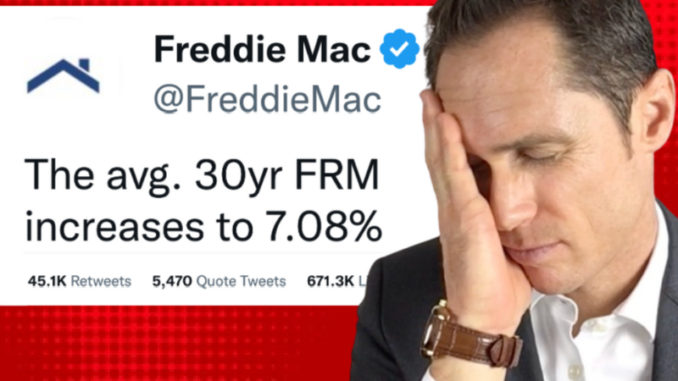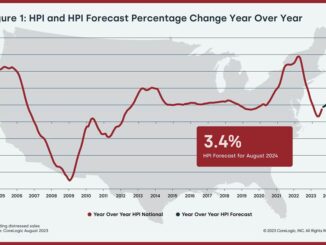
High mortgage rates and elevated home prices continued to dampen the consumer sentiment regarding home purchase decisions in January, according to new data from Fannie Mae. Ongoing affordability issues remained a problem for buyers last month, and home sales are now expected to remain muted in the coming months.
But while affordability has continued to deter homebuyers from entering the market, there was an uptick in the Fannie Mae Home Purchase Sentiment Index (HPSI) last month. The HPSI, which monitors homebuyer and seller confidence in the housing market, increased for the third consecutive month in January, rising by 0.6 points to 61.6.
However, the HPSI is still well below pre-pandemic highs, and is down by 10.2 points compared to the same time last year.
“January’s HPSI results showed that consumer sentiment toward the housing market remains subdued by historical standards,” Doug Duncan, Fannie Mae senior vice president and chief economist, said. “For consumers, the same affordability issues are persisting, as they continue to indicate that high home prices and high mortgage rates make it a ‘bad time to buy’ a home.”
Sentiment regarding home purchases also declined in January compared to December. Last month, just 17% of respondents said it was a good time to buy a home — a decrease from 21% the month prior. On the other hand, about 82% of respondents said it was a bad time to buy, an uptick from 76% in December.
In turn, the net share of those who said it was a good time to buy decreased 9 percentage points month over month.
On the seller side, 59% of respondents said January was a good time to sell a home — up from 51% the month prior. Another 39% believed it was a bad time to sell compared to 42% in December 2022.
“Although ‘good time to sell’ sentiment ticked upward this month, it’s still much lower than it was a year ago, as purchase affordability remains seriously constrained and mortgage demand has receded. Until we see improvements in affordability via lower home prices and mortgage rates, we expect home sales to remain muted in the coming months,” Duncan said.
Consumers were also less optimistic about mortgage rates in January than they were the month prior.
The percentage of consumers who said they believed that mortgage rates would decrease over the next 12 months declined to 13% from 14% in December 2022 — a decrease of about 1%. More than half (52%) said they believed that rates will go up over the next year, while 33% believed mortgage rates would stay the same.
There was also an uptick month-over-month in the percentage of respondents who said home prices will go up in the next 12 months.
The share of respondents who believed that home prices would climb over the next year increased from 30% to 32% on a monthly basis, while the percentage who said that home prices would go down remained unchanged at 37%. Additionally, the share of consumers who said they think home prices will stay the same over the next year increased from 29% to 30%. This could lead to homebuyers holding off on home purchase decisions for time time being, according to Fannie Mae.
“The latest survey data also indicated that the majority of consumers expect home prices to decrease or remain flat over the next year, which may incentivize some potential homebuyers to delay their purchase decision,” Duncan said.
But while affordability remained an issue for consumers in January, there could be hope on the horizon.
Mortgage rates dropped close to 6% last week, with the 30-year fixed-rate down nearly a full point from November, according to Freddie Mac. This drop in rates will allow nearly 3 million additional people to qualify for a $400,000 loan.



